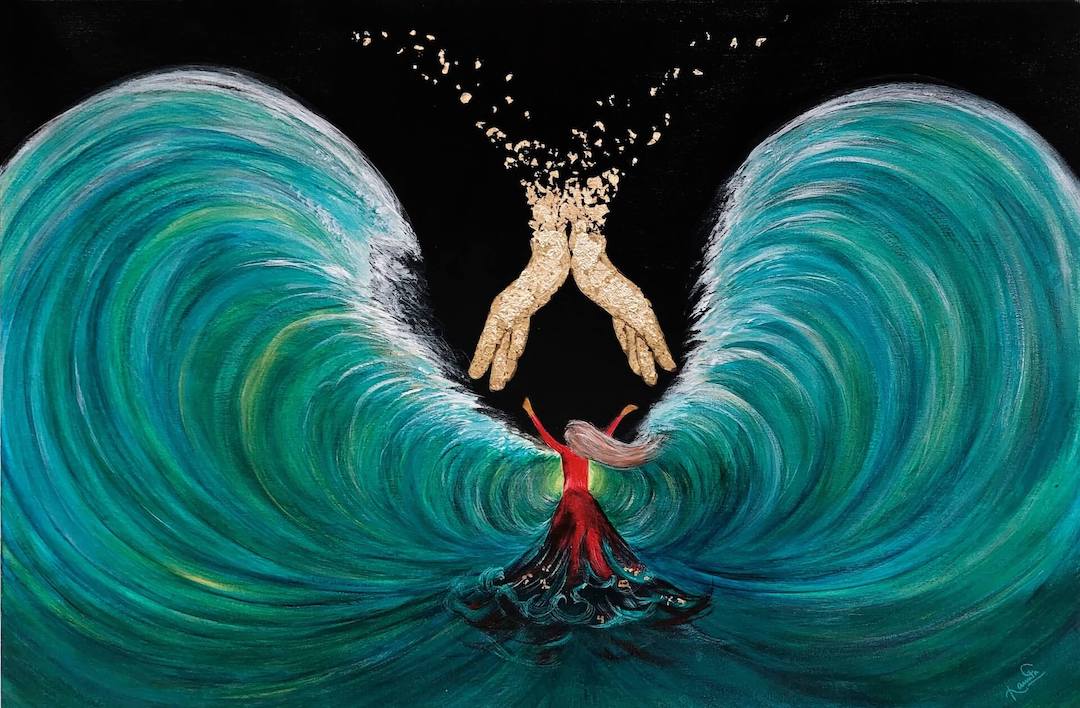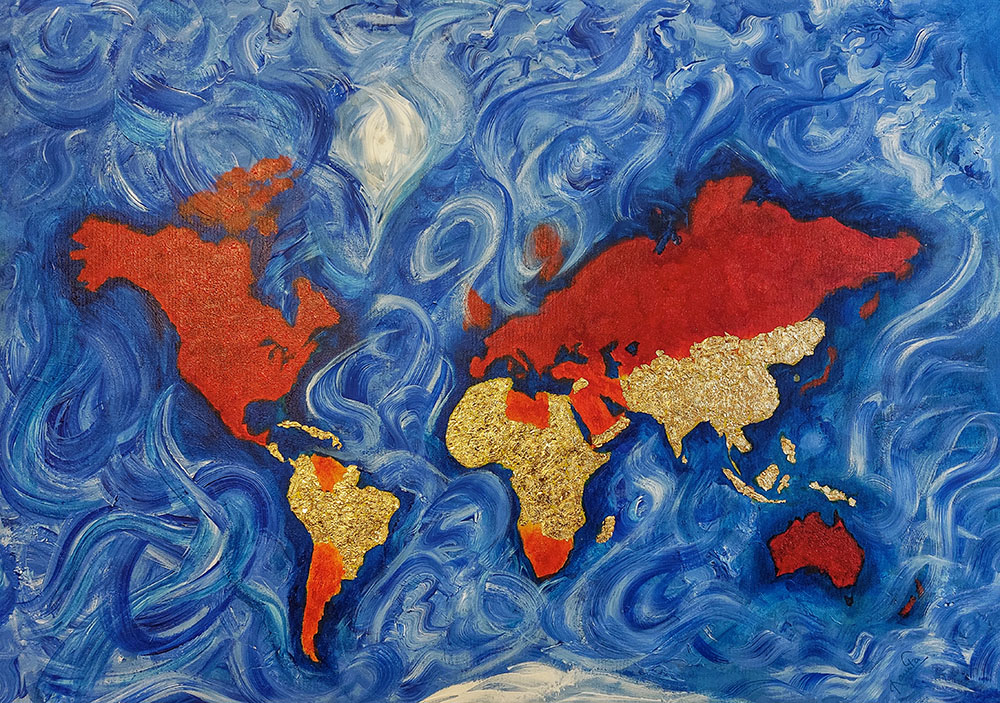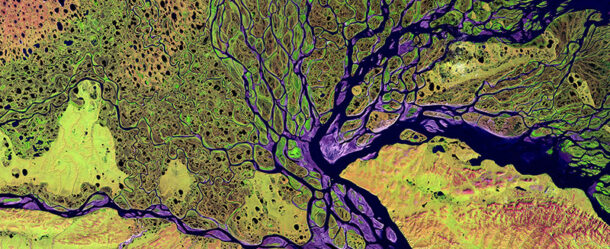Indian artist and activist Namita Kulkarni has released a new public arts project that demonstrates how colonialism has been, and continues to be, the major cause of the climate crisis.
Through a collection of thought-provoking paintings and stories, the project aims to raise awareness about the ongoing human rights violations that have contributed to the climate crisis while highlighting the need for a more inclusive, equitable, and sustainable future.
“Far too often, we see the climate crisis framed as a matter of carbon emissions that we can compensate or offset our way around,” shared Namita. “But the colonial dimensions of the climate crisis cannot be overlooked. I wanted to create a series of paintings that make explicit the link between colonialism and the climate crisis, and also point to indigenous perspectives that dominant culture excludes.”

Woman Stands Shining
The public arts project, available through a virtual exhibit, is a product of Namita’s artist residency through ICAAD’s Artivism initiative.
Jaspreet Singh, Co-Founder + Advocacy Strategist, said, “We are thrilled to support Namita’s incredible work, which beautifully captures the intersection between human rights and environmental justice. Art has always played a crucial role in inciting social change, and we hope that this project will inspire others to think more deeply about the connections between colonialism, climate change, and community.”
In addition to the online exhibit, Namita’s paintings have been on display in Bangalore, receiving national acclaim. Now, the collection is accessible to a global audience. The public is encouraged to explore the gallery and share their reflections, of which a selection will be included on the exhibition page. This is to help facilitate connection and community in order to imagine a more equitable future.
“We need stories that point us to a whole other way of relating to the earth, not as a bunch of resources but as a web of relationships. And that our innate sense of awe and reverence for life stands in direct opposition to the colonizing impulse that has brought the climate crisis to our doorsteps”, stressed Namita. “That is what I’ve tried to share with this project.”

Colonizer Crisis

